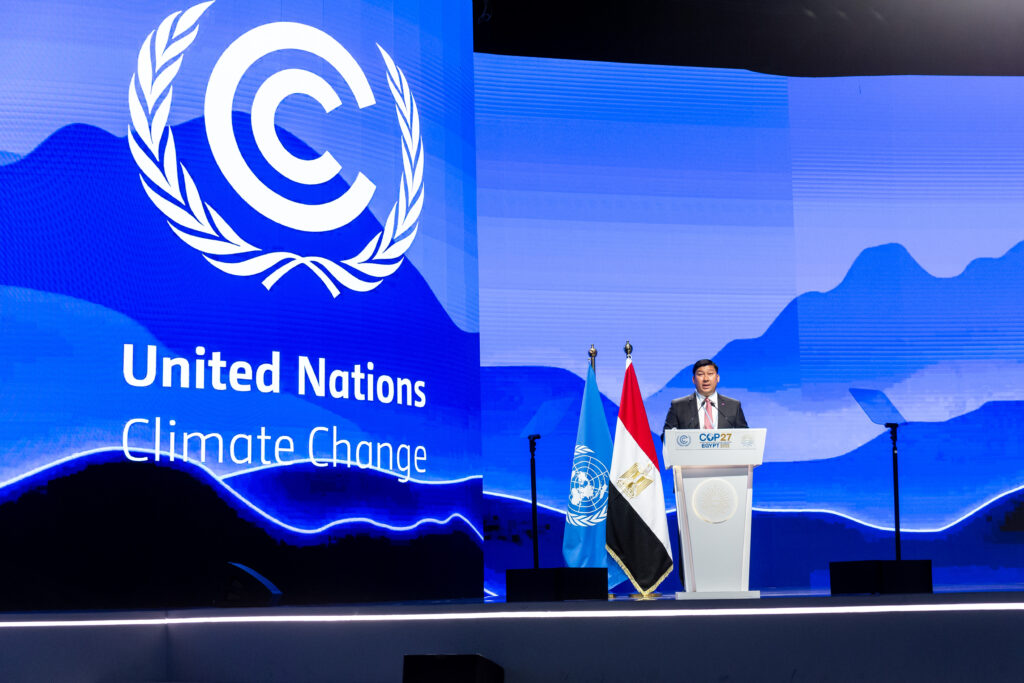Cambodia runs on both renewable and non-renewable energy, a mix of hydropower, solar and biomass followed by coal and fuel oil. The share of renewables is forecasted to grow in 2024 but may not keep up with demand. Nuclear power offers the potential to help the country overcome environmental regulations and climate trends, but Cambodia is still a long away from a viable nuclear energy program.
In 2020, Phnom Penh enacted a 10-year moratorium on dam development along the Mekong River and pledged to stop adding coal power plants. The Power Development Plan (PDP) 2022-2040 was created to explore alternatives, primarily renewable energy development in order to enable Cambodia to transition to a cleaner energy mix while fulfilling international commitments.
The PDP calls for $US655 million to develop non-mainstream Mekong hydro dams, solar PV plants, Battery Energy Storage System, biomass and natural gas from 2026. This may fundamentally restructure the national energy mix, which included 2277 megawatts (MWs) from renewables, 1700 MWs from fossil fuels and another 672 MWs from imports. Cambodia’s Pentagonal Strategy also stresses the utilisation of renewable energy and officially marks its interest in civil nuclear energy.
Currently, Cambodia has partnerships with Russia and China on nuclear energy for peaceful purposes. Phnom Penh and Moscow signed their first memorandum of understanding (MOU) in 2015 and two more in 2016, establishing the Cambodia-Russia Joint Working Group and the Information Center of Nuclear Energy with the aim to raise awareness of nuclear energy and technologies among the Cambodian public, especially youths.
The two sides also inked agreements to establish and develop the infrastructure of nuclear energy and technologies in Cambodia and an Information Center of Atomic Energy between Rosatom Southeast Asia and the Institute of Technology of Cambodia in 2017 and 2018 respectively. But Cambodia’s support for Ukrainian sovereignty and territorial rights possibly complicates future cooperation and investment with Russia.
Cambodia also signed an MOU with China on nuclear industrial cooperation in September 2017. The deal was divided into two phases. First, it focuses on the development of the nuclear industry by raising human resources and public awareness, as well as applying nuclear energy in priority sectors. The second stage of the MOU calls for greater attention to the assessment of the country’s capacity and needs required for the future development of nuclear energy.
Apart from nuclear cooperation partnerships, Cambodia is a member of the 1968 Nuclear Non-Proliferation Treaty, the 1997 Treaty on the Southeast Asia Nuclear Weapon-Free Zone (Bangkok Treaty) and is a signatory to the Comprehensive Test Ban Treaty as well as International Atomic Energy Agency (IAEA) safeguard agreements. Thanks to technical assistance from the IAEA, Phnom Penh is working to establish the Law on Nuclear Power, though it stated as recently as 2020 that the country has no plans for nuclear power plant investment until 2040.
Cambodia, like all members of the Association of Southeast Asian Nations (ASEAN) is bound to the Bangkok Treaty, which establishes a regional regulatory framework governing peaceful nuclear programs. Article 4 states that there shall be no prejudice against the right of ASEAN member states to use nuclear energy, in particular for their economic development and social progress.
But before embarking on a peaceful nuclear program, each country must subject its program to rigorous nuclear safety assessment conforming to the guidelines and standards of the IAEA and upon request, make it available to another ASEAN member for assessment. The Bangkok Treaty and IAEA membership thus form key elements for building a successful civil nuclear power program in the region.
Human resource development in the field of nuclear science and technology appears to be slow as Cambodia does not have nuclear science education at the tertiary level. Complicating matters further is that Russia typically produces civil nuclear engineers for Cambodia, including six who have completed their studies in nuclear engineering and thermal physics at Russian universities between 2021 and 2023. Despite Cambodia’s decision to support Ukraine, Russia continues to provide scholarships to Cambodia and there are currently 12 Cambodian students pursuing their degrees in this field in Russia.
Recent research shows that the Cambodian government has simultaneously intended to expand and introduce both renewable and nuclear energy, but that there does not appear to be a consensus about nuclear power among Cambodian officials. It continued that geographical and environmental conditions have undermined the acceptability of nuclear energy while bolstering that of renewables because it offers Cambodia a perceived competitive advantage. This is not to mention the inherent risks of nuclear energy and Cambodia’s near-zero nuclear technology capabilities and small uranium deposits.
Cambodia might not have a nuclear power plant in the foreseeable future, at least until 2040. Getting itself ready for one is a good long-term strategy. For now, renewable energy offers the most viable path forward for fulfilling nationwide generation capacity.
Dyna Phon holds a Master of Science in Development Studies from Lund University, Sweden, and a Bachelor of Arts in International Relations from the Institute for International Studies and Public Policy, Royal University of Phnom Penh, Cambodia.

